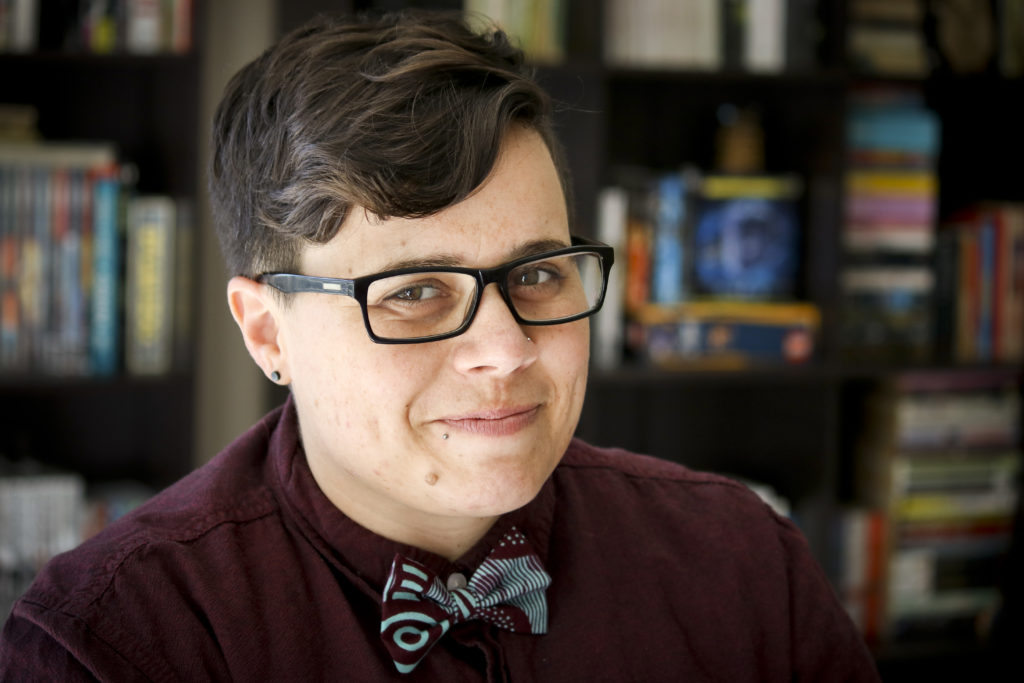By Dr Nyx McLean, Grocott’s Mal engagement editor
One thing we want to try and have more of at Grocott’s Mail is conversations with the community. We want to hear different viewpoints and understand where people are coming from. Too easily, conversations are polarised – resulting in ‘us’ vs ‘them’, which leads to us othering each other until we reach a point of no engagement.
We’ve seen this in the responses to the COVID vaccine, and more recently, we’ve seen it this week in the current standoff between Rhodes University management and the National Union of Public Service and Allied Workers (Nupsaw) over the union’s demands to be given organisational rights on campus. These are not productive spaces when there is very little space for considered conversations.
Conversations can also be unproductive when arguments are presented in ways that are not informed but rather reactionary, as we have seen with those opposed to getting the COVID-19 vaccine (commonly referred to as anti-vaxxers). Some of the content being shared online and then making its way into conversations come from individuals and groups who speak directly to people’s fears.
The divide in the vaccine conversation is not only on the anti-vaxxers but also on those on the other side who are at times at risk of being inflammatory with how they react to anti-vaxxers. This does not serve the conversation; it does not help move us into a space where we are taking care of each other and our community’s common health and well-being. And yes, here at Grocott’s, while we stand by the science and countless studies that have brought us the COVID-19 vaccines, we believe it is important to hear other viewpoints before we begin to pass judgment or formulate our immediate responses.
One such example was shared with us in the comments of a Facebook post this last week, where one member of the community shared how they had been treated as an anti-vaxxer because of their current refusal to get vaccinated.
That is, for some, an immediate reaction: to judge when we hear that people do not want to be vaccinated.
But in reading the person’s response, their argument was sound. They had already had the virus twice, and drawing on a study from a peer-reviewed journal, could argue that their immune system had already received the same ‘message’ that another person’s immune system would receive from getting the vaccine. This person is not opposed to vaccinations but does not believe that, right now, it is necessary because their body has developed the necessary antibodies. In this moment of engaging with this experience shared with us, I wondered how we could create the space for people to share their viewpoints without increasing divides?
One thing we are trying to do at Grocott’s Mail when differing viewpoints come in is to approach them with respect and careful consideration. There is great potential, value and learning in all viewpoints. While this may make us initially uncomfortable – whether we’re pro, anti, or somewhere in the middle – it is important that we hold space for differing views if we want to have productive conversations that ultimately bring us together as a community instead of dividing and dispersing us.
It is possible to find common goals between those of us who have differing viewpoints. For instance, back to the case of the COVID-19 vaccine, what do those who are pro-vax and anti-vax have in common? The wish to prevent harm. This is understood from their different viewpoints, but it does come down to this. How do we move the conversation forward with this in mind?
Issues such as COVID-19 and vaccinations are not clear cut. There are real concerns from all groups, and they should be heard without trying to correct or judge off the bat. Once again, we are appealing to the community to reach out to us and share your views on the COVID-19 vaccine. We want to understand your experiences, wherever you may fall in the current debate on whether to receive the vaccine or not.


